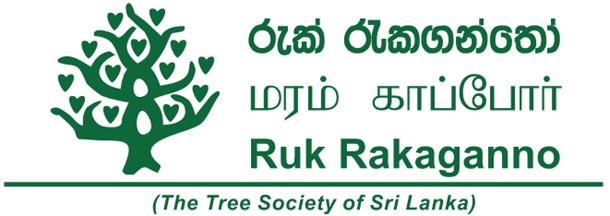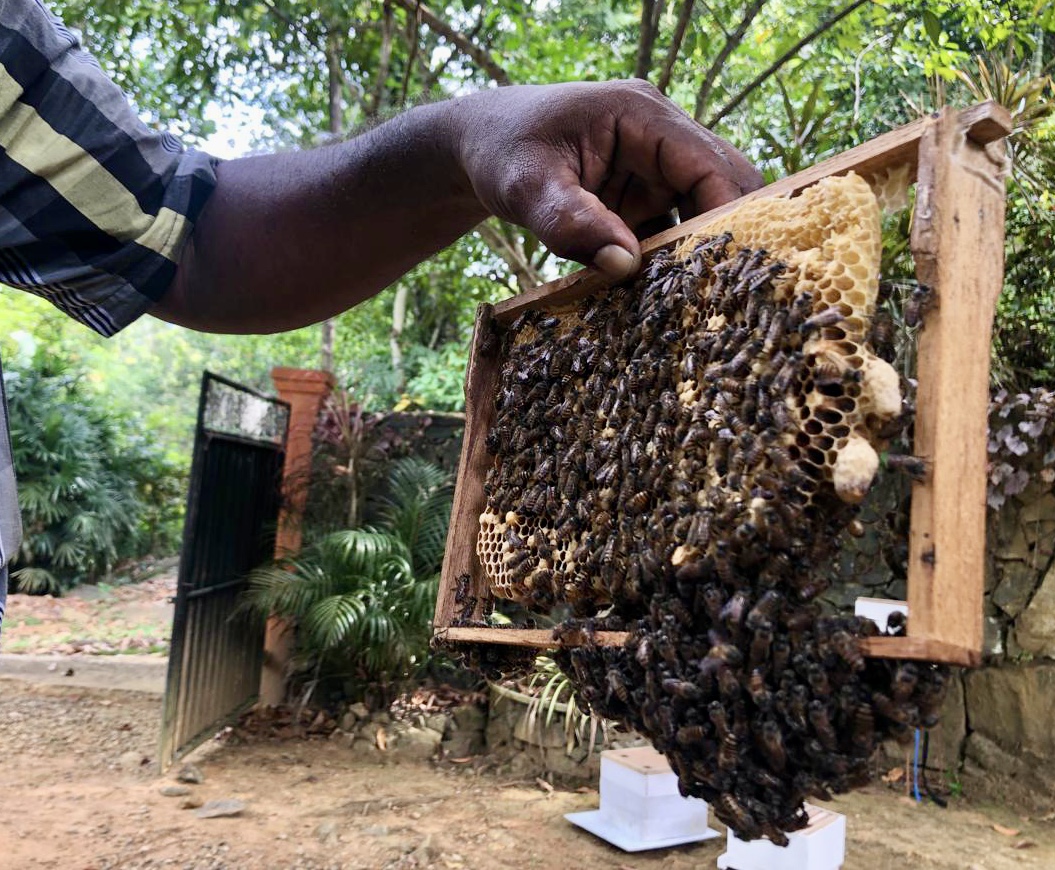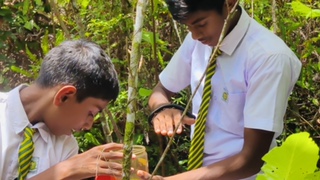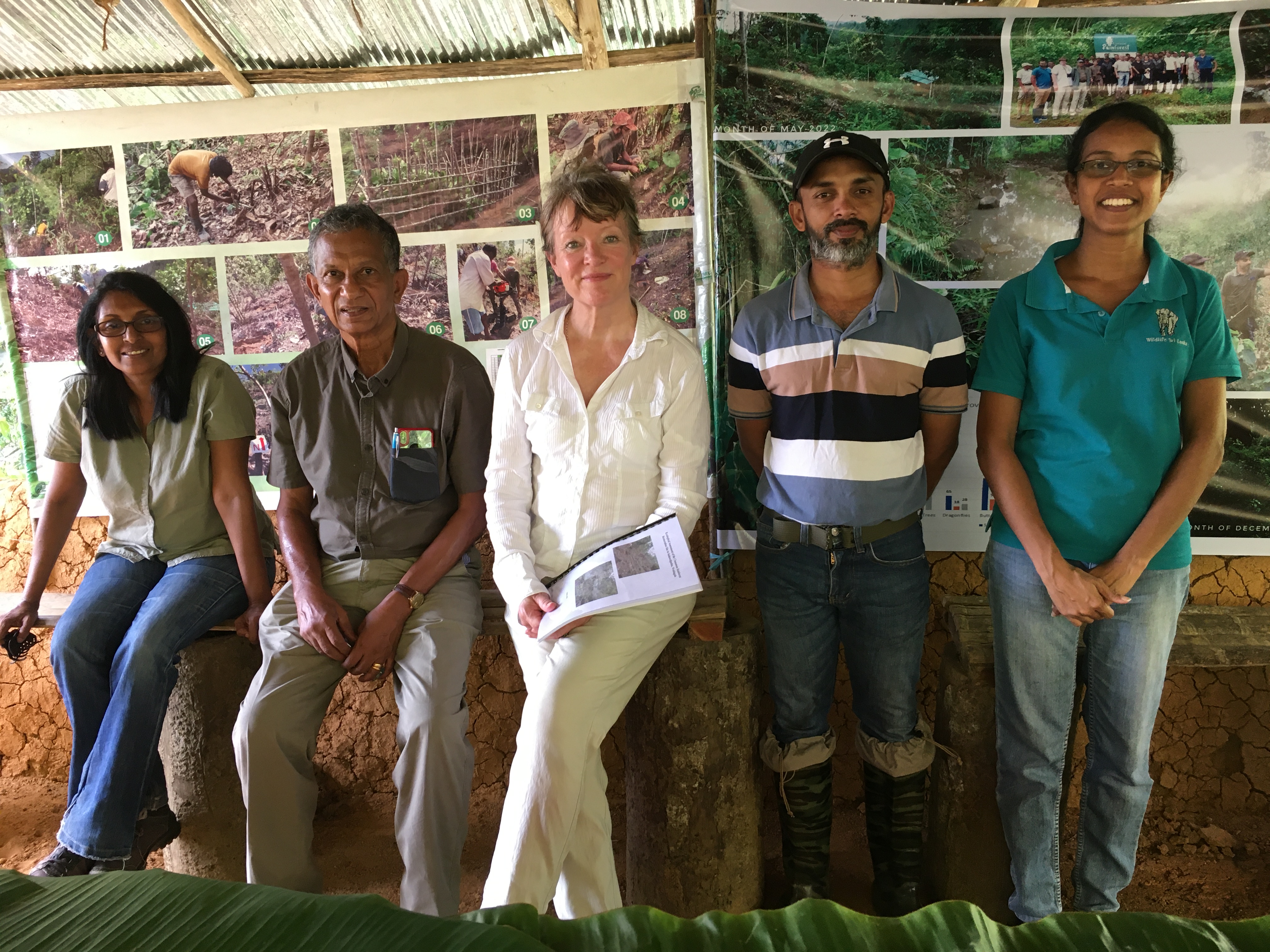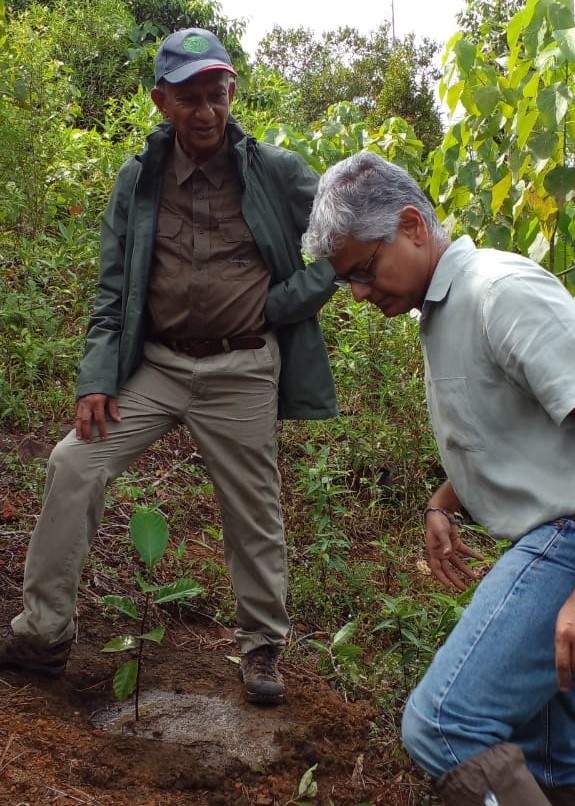The Dankombuwa Beekeeping for Honey Production - Project Story
Ruk Rakaganno, the tree society of Sri Lanka is a non profit, volunteer based, non-governmental organisation founded in 1975 during an era in which people had started to destroy forests extensively and conservation was not a major concern in the society. The only other functioning environmental non-governmental society was the Wild Life and Nature Protection Society, whose main concern was to protect wildlife. Ruk Rakaganno was initiated to mainly concentrate on preserving trees and forests, which are home to a great variety of plants and animals.
The organisation counted upon its founding members, many illustrious and well known personalities in society in that era and was an advocacy organisation for the environment.
Over the years many significant projects were embarked upon , such as; protecting the Sinharaja forest from being felled by a Canadian Company for timber, conserving the Forest and Water resources of the Soragune/Weli Oya region to save the forests and grassland/water resources, tree planting under the school awareness programme, establishing a women’s environment center and many other environmentally related projects. The organisation’ current project is the Ecological restoration of denuded forest of 59 acres in the buffer zone of the Sinharaja Rain Forest which is funded by the John Keells Foundation. The team has planted 19,000 indigenous wet zone forest plants in 70 diverse species. The said project was recently awarded the JKH Chairman’s award for sustainability. Please refer to the website www.rukrakaganno.org for more information on the organisation.
The Dankombuwa Beekeeping for Honey Production Project was an initiative of the organisation to conserve and enhance the environment by natural means and was privileged to join hands with Deutsche Bank who kindly came forward as the project funders.
An effective way of conserving and enhancing a forest is to educate the masses living in the periphery of it in understanding the utilisation of the natural surroundings for economic gain. There are several eco-friendly methods available at present and “Beekeeping for Honey Production” can be considered as a simple and effective one.
For any new sustainable project to be effectively accepted by the people, certain prerequisites such as Environmental suitability, Technology, Economic viability and the People’s acceptability need to be considered. Beekeeping for honey production fulfils all of them and honey has been a much valued commodity in the Sri Lankan household for millennia and an important ingredient in the indigenous medical system.
However, traditionally Sri Lanka had no culture of beekeeping and the household requirements of honey is mainly supplied through ‘honey hunting which is ‘ facilitated by the destruction of hives, with drastic environmental impacts. In this project bees honey is extracted by a stainless steel centrifugal extractor with no damage to the beehive. The extracted honey is stored in stainless steel containers and hygienically packed into sterilised glass bottles in situ. Development of beekeeping for honey production in the home gardens among communities that are directly associated with the forest is perhaps the most effective way of protecting and enhancing the sustainability of the community and the forest simultaneously.
This project location was identified to utilise the resources of the forests of Deraniyagala due to the abundance of fruit/rubber trees and the luscious vegetation in the area. This creates an alternative/additional source of income for the village folk and utilises the female workforce who are otherwise unemployed. Plans to educate the youth in the local school on environmental sustainability is also in the pipeline.
It is expected to expand this project to the neighbouring villages and be a source of full time employment by which the village community can not only have a source of additional revenue but contribute to the sustainability of the environment simultaneously .

Pristine landscape of Dankombuwa, the location of the project.
